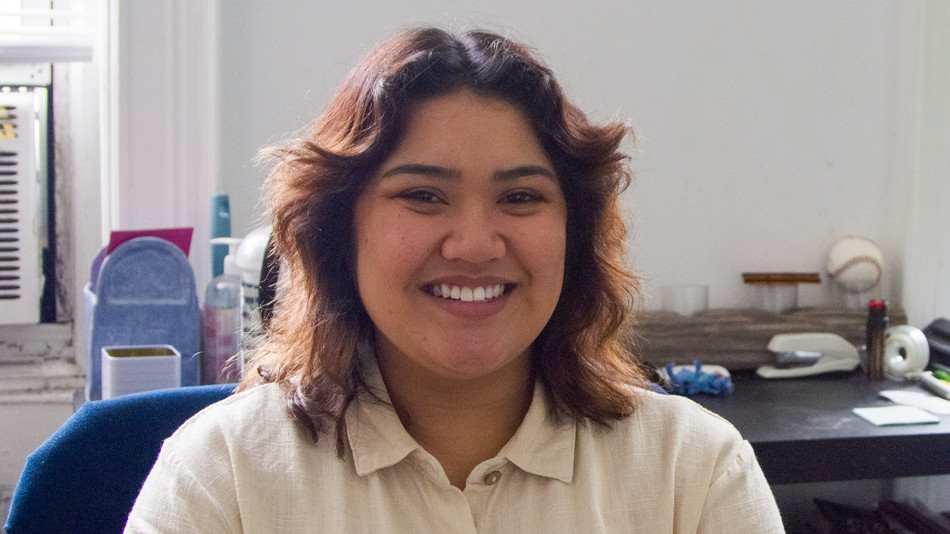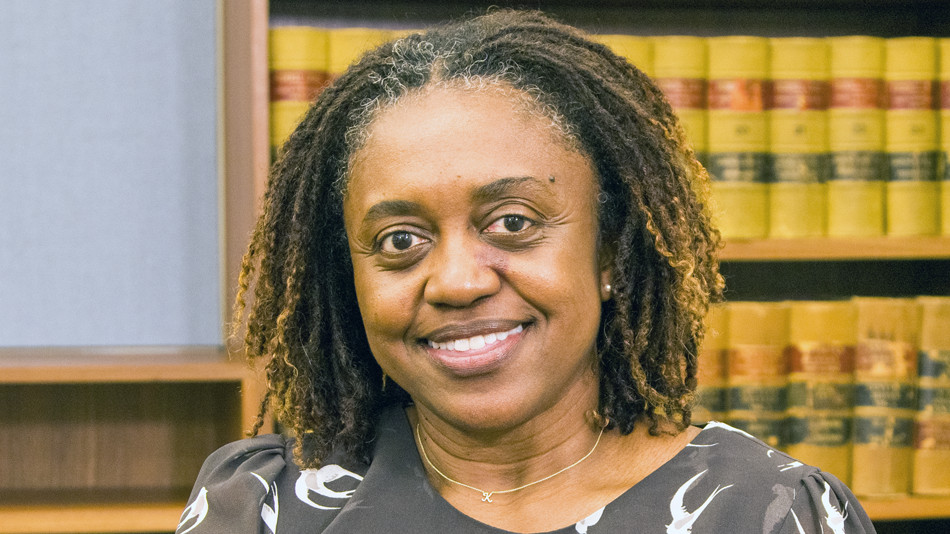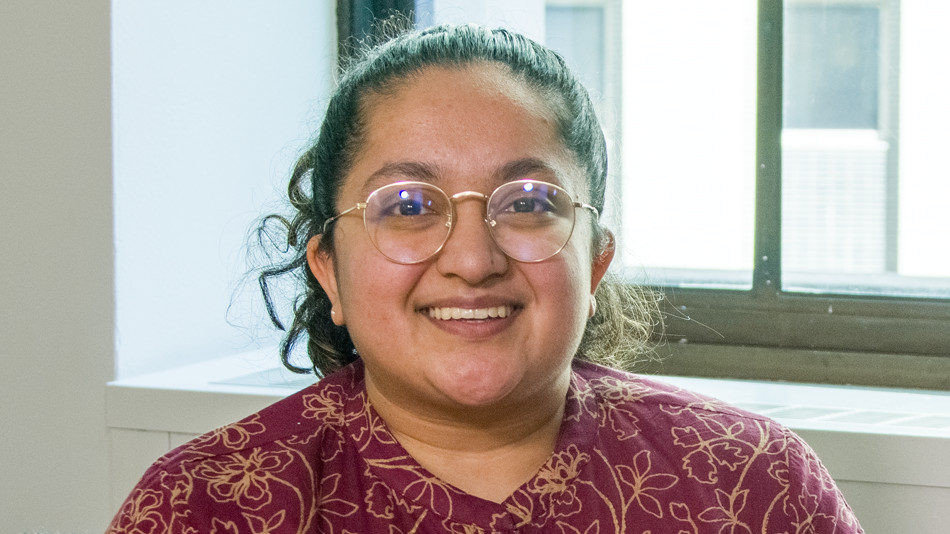My name is Evonna McDonald and I’m from Baltimore, Maryland.
So it was the summer going into high school right after middle school where I decided to explore my sexuality. A really close friend of mine in middle school, we started really hanging out 8th grade year and then during that summer when we graduated to go to high school, she shared with me that she was gay. Over the summer, we got really close and she shared with me that she liked me and I was like, “Oh, like you like me like me?” And I was like, “Well, I’m not really, you know, into girls but, you know, I’m so happy for you that you are coming out.”
And so as the summer went on, we got even closer and, you know, we decided to be in a relationship. And I think for me, it was just about me admiring her courage to come out and to, you know, declare her sexuality. And the fact that we were really close friends really made it easy for me to feel safe while I explored my own sexuality.
We went to separate high schools and she knew someone that went to my school. She was – the girl was older. She was in the tenth grade and I’m a freshman coming in. And so maybe about a couple of months into the school year, a couple months into the relationship, I met her friend at school one day. And she came up to me and she just was so excited and she was just like, “I’m so happy, you know, that you are a lesbian and that you’re in this relationship with my friend.”
I never really just claimed it, I guess, in that way and so I just was kind of at a loss for words when she said that. And then she just, I think, went throughout the school just sharing with some of her friends, like some of her group of her lesbian friends that she had that, you know, who I was and that I was in a relationship with her friend and everything. And so it just kind of got throughout the school that Evonna is a lesbian. And I never really said it to anybody. I never – no one ever asked me or I never really said, you know, Yes, I’m a lesbian. It just was something that was defined for me.
Me and her ended the relationship but remained friends. And I had a couple more different girlfriends, some that went to my school and some didn’t. And so my senior year, at that point I was single – like, maybe towards the end of senior year, I was single. And this guy was interested in me. And so one of my friends actually told me – she’s like, “He really likes you. He’s always talking about you.” Blah, blah, blah.
And I was just like, “Oh, you know, okay, cool.” I was like, “Well, we can exchange numbers.” And so we did it and so we started talking and I really liked him. People found out that me and this guy were talking and so it became this whole big uproar and then apparently his ex-girlfriend was upset about it. And it just became a whole big drama and the – a lot of what I would hear throughout the school was like, Well, how can she like him if she’s a lesbian? Or She’s not supposed to be talking to him because she’s gay. And, you know, She doesn’t even like boys. How can she talk to him? And it just became such this narrative that I was a lesbian so I couldn’t talk to boys. It just really made me feel kind of upset with myself. Like, Why didn’t you speak up from the beginning and say, “I’m not a lesbian. I’m bisexual and I like both sexes.”? So me and him decided to just break it off and not continue to date or talk anymore because it was just way too much drama.
After that, there was another another situation where I was out with some of my friends. We were leaving a party and it was this group of guys, you know, come in just flirting and trying to talk to us. And one of my friends kinda stood almost in front of me and said, “You can’t talk to her because she’s a lesbian. She doesn’t like dudes.” And she said it in this way that was, I guess, supposed to be protecting me in a way, but it made me so angry and I just – I walked away and left them.
When we came into school that next week I confronted her about it. We were in the cafeteria and I said, you know, “Hey, that really upset me that you did that. Like, you didn’t know if I wanted to talk to him or not. You know, you never asked me. And it was rude for you to do that.”
And so she just was like, “Oh, well if you want to talk to him, just go talk to him then.” And, you know, that made me feel like this wasn’t the kind of friends that I want. You know, I want – I want people who will care about my feelings and care about my perspective and what I have to say.
Graduated high school and in college, there was another moment – another moment where a good friend of mine who became close throughout freshman year and sophomore year in college. And we were doing something to get ready for a party and and doing our make-up and stuff and she was just like, “You know, Evonna, I’m so glad that you talk to girls because I wouldn’t like you if you dated guys.” I think at this point it was just so – it had been so many times where again I feel like I’m not speaking up for myself or someone else’s it’s telling me, you know, who I should date and what I should do and, you know, all this kind of a thing. And it really made me upset and I just went off on her. And I was just like, you know, “How dare you for you to say that, you know, you wouldn’t like me or we couldn’t be friends or something to that effect if I’d – because of who I date.” You know, and so she was kind of shocked.
That was the moment where I just was like, No, I’m not going to just kinda shrink every time someone, you know, says this or has this identity about me and not speak up for myself. I say, you know, “No, I’m not a lesbian. No, I don’t just date women. I date both, you know, and I’m okay with that.”
For me, those moments even though it hurt in those moments, it was painful, it really strengthened me and helped me to fully just own who I am and own my sexuality as a bisexual woman. I’m just much more sure of myself.
I can’t be confined or restricted to someone else’s thoughts or someone else’s perspective or their opinion or whatever your paradigm is. I can’t be confined and I have to be free. I have to be who I am. And if I, you know, allow someone’s small way of thinking or small perspective define that for me, I wouldn’t be fully who I am.








Share